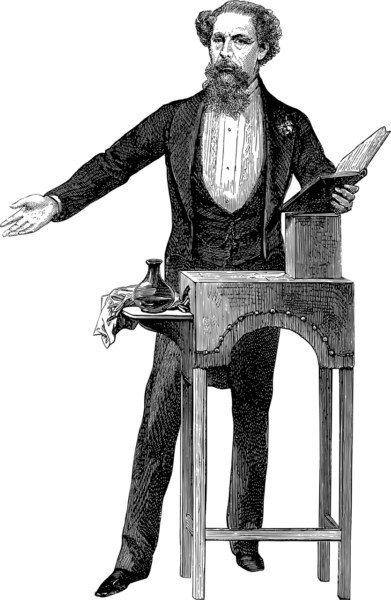Persuasion: The Timeless Brilliance of Jane Austens Masterpiece

Introduction:
In the vast literary landscape, few works have captured the hearts and minds of readers quite like “Persuasion” by Jane Austen. Published posthumously in 1817, this captivating novel has become a renowned classic, beloved by generations of readers. In this article, we delve into the world of “Persuasion Jane Austen,” exploring its key elements and historical significance. Whether you’re a seasoned Austen enthusiast or a curious newcomer, this comprehensive exploration will provide valuable insights into this timeless piece of literature.
I. Understanding “Persuasion Jane Austen”:

1. “Persuasion” is a novel that centers around the themes of love, family, and societal expectations. It tells the story of Anne Elliot, a young woman whose life takes an unexpected turn when she reconnects with a lost love, Captain Frederick Wentworth.
2. Jane Austen’s brilliant characterization and keen observation of social dynamics are prominent throughout the novel. The characters are vividly portrayed, with their quirks and complexities bringing depth to the narrative.
3. Through Anne Elliot’s journey, Austen explores the timeless themes of second chances, personal growth, and the consequences of societal pressure. The novel offers keen insights into the complexities of human relationships and the impact of choices made in youth and adulthood.
II. The Evolution of “Persuasion Jane Austen”:
1. Historical Context: “Persuasion” was written during the Regency era, a time of significant societal change and upheaval. Austen’s novels often reflect the social mores and expectations prevalent during her time, making them not only engaging works of fiction but also windows into the past.
2. Initial Reception and Posthumous Recognition: Upon its release, “Persuasion” received little attention compared to Austen’s other works. However, in the following decades, as Austen’s popularity grew, the novel gained the recognition it deserved.
– Noteworthy Bullet Point 1: Despite its initial reception, “Persuasion” is now considered one of Jane Austen’s most significant works, admired for its mature themes and nuanced storytelling.
– Noteworthy Bullet Point 2: The novel has inspired numerous adaptations in various mediums, including film, television, and even stage productions. Its enduring appeal is a testament to its timeless and universal themes.
III. Exploring the Impact and Relevance:
1. Themes that Resonate: At the heart of “Persuasion” are themes that transcend time and place. The exploration of love, societal expectations, and personal agency resonates with readers from all walks of life.
2. A Feminist Lens: “Persuasion” showcases Austen’s astute understanding of the limitations placed upon women in her time. The novel allows readers to reflect on the progress made regarding gender equality while also highlighting the battles that still remain.
3. Lessons in Empathy: Austen’s ability to create relatable characters invites readers to empathize with their struggles, making “Persuasion” a valuable literary work for cultivating empathy and understanding.
Conclusion:
“Pesuasion Jane Austen” stands as a testament to the enduring brilliance of Jane Austen’s work. Its exploration of love, society, and personal growth continues to captivate readers, making it a cherished piece of literature. This article has provided a thorough understanding of the novel’s key elements and its historical significance, shedding light on why it remains a treasured classic. Whether you’re an avid fan or new to Austen’s world, “Persuasion” promises an unforgettable journey into the complexities of the human heart.
FAQ
What is the central theme of Jane Austens Persuasion?
What is the historical significance of Persuasion Jane Austen?
Why did Persuasion receive little attention upon its release?
Flere Nyheder
Erhvervsfotografering i Aalborg: God for forretningen
Introduction: In the vast literary landscape, few works have captured the hearts and minds of readers quite like “Persuasion” by Jane Austen. Published posthumously in 1817, this captivating novel has become a renowned classic, beloved by...
01 juni 2025
Galleri Nordjylland: Kunsten i Hjertet af Vendsyssel
Introduction: In the vast literary landscape, few works have captured the hearts and minds of readers quite like “Persuasion” by Jane Austen. Published posthumously in 1817, this captivating novel has become a renowned classic, beloved by...
04 november 2024
Erhvervsfotograf – Din nøgle til professionelt visuelt indhold
Introduction: In the vast literary landscape, few works have captured the hearts and minds of readers quite like “Persuasion” by Jane Austen. Published posthumously in 1817, this captivating novel has become a renowned classic, beloved by...
14 marts 2024
Plakater til mor: Den perfekte gave er hylder kærlighed og taknemmelighed
Introduction: In the vast literary landscape, few works have captured the hearts and minds of readers quite like “Persuasion” by Jane Austen. Published posthumously in 1817, this captivating novel has become a renowned classic, beloved by...
06 marts 2024











